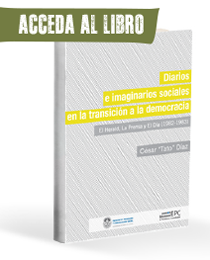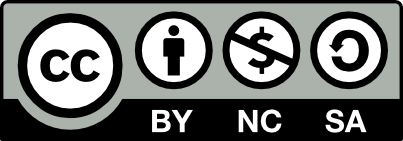The Appropiation of the Ladies
Marriage, Motherhood and Family, the Basic Articulation of the Heterosexual Regime
DOI:
https://doi.org/10.24215/24690457e029Abstract
In this article, the authoress analyzes the heterosexual discourse present in El Tiempo and El Espectador newspapers, between 1920 and 1925, the period in which modernization process emerged in Colombia. The French materialist feminism, postcolonial feminism, lesbofeminism and, descolonial critical theory were used as theoretical and political positions in the analysis of the information collected. The findings propose that the press was a central means of legitimizing the heterosexual regime, by promoting the material and subjective appropriation of women by men.
Downloads
References
Bermúdez, I. C. (2008). El ángel del hogar: una aplicación de la semántica liberal a las mujeres en el siglo XIX andino. Historia y Espacio, 4(30), 11-43. Recuperado de http://historiayespacio.univalle.edu.co/index.php/historia_y_espacio/article/view/1671
Castro-Gómez, S. (2009). Tejidos oníricos. Movilidad, capitalismo y biopolítica en Bogotá (1910-1930). Bogotá, Colombia: Editorial Javeriana.
Curiel, O. (2013). La nación heterosexual. Bogotá, Colombia: Brecha Lésbica.
Curiel, O. y Falquet, J. (2005). El patriarcado al desnudo. Tres feministas materialistas. Buenos Aires, Argentina: Brecha lésbica.
Espinosa, Y. (2009). Etnocentrismo y colonialidad en los feminismos latinoamericanos. Complicidades y consolidación de las hegemonías feministas en el espacio transnacional. Revista Venezolana de Estudios de la Mujer, 14(33), 37-54. Recuperado de http://saber.ucv.ve/ojs/index.php/rev_vem/article/view/2064
Espinosa, Y., Gómez, D. y Ochoa, K. (2014). Tejiendo de otro modo. Feminismo, epistemología y apuestas descoloniales en Abya Yala. Popayán, Colombia: Universidad del Cauca.
Garzón, M. T. (2012). Hacerse pasar por lo que una no es. Hacia una performatividad descolonial del silencio [Tesis de Maestría]. Bogotá, Colombia: Pontificia Universidad Javeriana.
Guillaumin, C. [1978] (2005). «Práctica del poder e idea de naturaleza». En O. Curiel y J. Falquet, El patriarcado al desnudo. Tres feministas materialistas (pp. 19-57). Buenos Aires, Argentina: Brecha lésbica.
Meersohn, C. (2005). Introducción a Teun Van Dijk. Análisis de Discurso. Cinta de Moebio, (24).
Mohanty, C. (2008). «Bajo los ojos de occidente: academia feminista y discursos coloniales». En L. Suárez Navaz y A. Hernández (Eds.), Descolonizando el feminismo. Teorías y prácticas desde los márgenes (pp. 117-153). Madrid, España: Cátedra.
Pedraza, Z. (2011). «La educación del cuerpo y la vida privada». En J. H. Borja Gómez y P. Rodríguez Jiménez (Eds.), Historia de la vida privada en Colombia. Los signos de la intimidad. El largo siglo XX, Tomo II (pp. 115-148). Bogotá, Colombia: Taurus.
Rich, A. (1986). Sangre, pan y poesía. Barcelona, España: Icaria.
Rivera, C. (2013). Representaciones sociales de «mujeres» lesbianas en la prensa escrita de Colombia. Un análisis de la colonialidad de género y la heterosexualidad obligatoria [tesis de maestría]. Bogotá, Colombia: Universidad Nacional de Colombia. Recuperado de http://bdigital.unal.edu.co/11280/
Van Dijk, T. (2009). Discurso y poder. Barcelona, España: Gedisa.
Wittig, M. (2006). El pensamiento heterosexual y otros ensayos. Barcelona, España: EGALES.
Wodak, R. (2003). Métodos de análisis crítico del discurso. Barcelona, España: Gedisa.
Woolf, V. (2017). Las mujeres y la literatura. Málaga, España: Miguel Gómez Ediciones.
Published
How to Cite
Issue
Section
License
Copyright (c) 2018 Juana Ochoa Almanza

This work is licensed under a Creative Commons Attribution-NonCommercial-ShareAlike 4.0 International License.
The acceptance of an original by the journal implies the non-exclusive transfer of the patrimonial rights of the authors in favor of the publisher, who allows the reuse, after its edition (postprint), under a Creative Commons License Attribution-NonCommercial-ShareAlike 4.0 International.
According to these terms, the material can be shared (copy and redistribute in any medium or format) and adapted (remix, transform and create another work from the material), provided that a) the authorship and the original source of their publication (magazine and URL of the work) are cited, b) is not used for commercial purposes and c) the same terms of the license are maintained.
The assignment of non-exclusive rights implies that after postprint in IMPRONTAS de la historia y la comunicación authors may publish their work in any language, media and format; in that case, it is requested that they signal that the material was originally published by this journal.
Assignment also entails the authors’ authorization for the work to be collected by SEDICI, the institutional repository of the Universidad Nacional de La Plata, and for it to be indexed in the databases that the publisher thinks appropriate for enhancing the visibility of the published work and its authors.
In addition, the journal encourages authors to submit their works to other institutional and thematic repositories after their publication in IMPRONTAS de la historia y la comunicación, under the assumption that offering society unrestricted access to scientific and academic production contributes to a greater exchange in global knowledge.






.jpg)


.png)


.png)


















